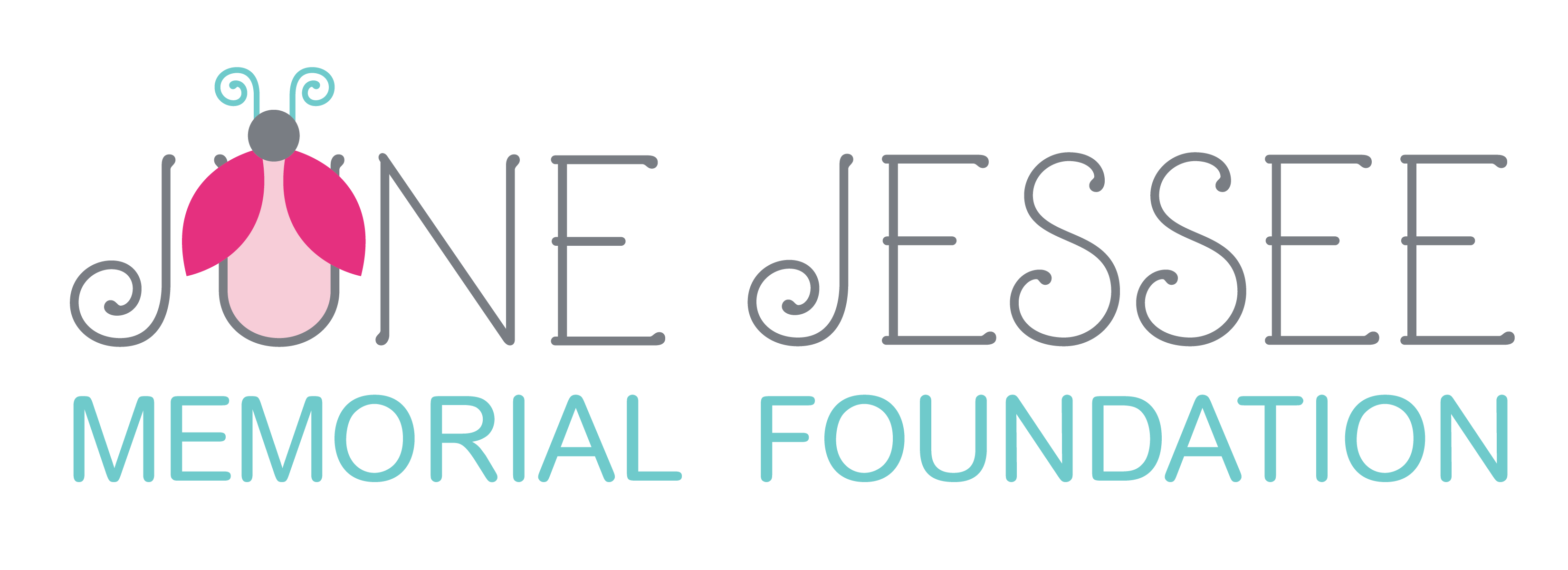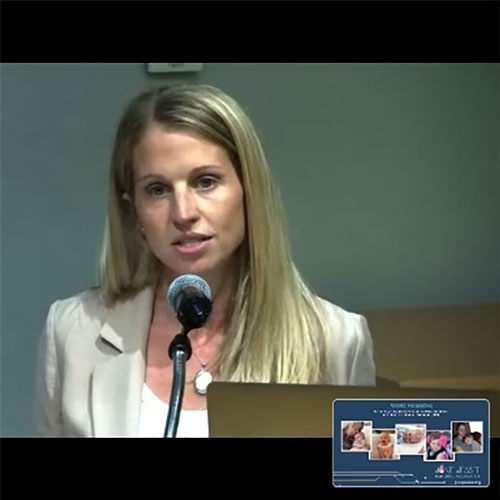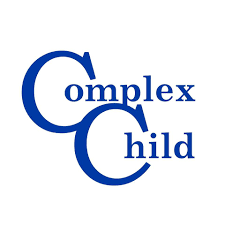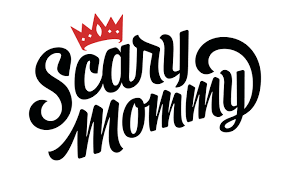Parental Perspective on Improving Healthcare Outcomes in Childhood Epilepsy
Genny Jessee presented the following message to healthcare providers at the “Pediatric Epilepsy Conference 2021: Improving Healthcare Outcomes in Childhood Epilepsy”. By sharing her parental perspective, Genny provided important insight on how healthcare providers can best support parents and families of children with medically complex, neurological conditions.
It is an honor to be here today to discuss my experience as a parent of a child with intractable epilepsy. As a mom, this conference on improving healthcare outcomes for childhood epilepsy is a topic that is very near and dear to my heart. While no two experiences are the same, I know first hand what it is like to care for a child with this devastating condition. And I have some ideas on what could have improved our journey.
Today, I’ll be sharing with you my story, and my daughter June’s journey with epilepsy and other complex health conditions. I’ll share our struggles as we navigated a complicated health care system and what helped us the most on this journey. I’ll also share some insights on what parents like me wish our doctors understood better. Finally, I’ll also touch upon the June Jessee Memorial Foundation, which my husband and I started in our daughter’s memory and how we support families to connect and find resources.
June is my first-born child, born in 2012. My husband, Matt, and I were filled with so much joy and happiness, I never could have imagined the dramatic contrast in emotions we’d feel just a few hours after I first held her in my arms.
The only indication we had that something MIGHT be wrong was when June didn’t pass her newborn hearing screening at the hospital. While this certainly raised concern with us, we were told not to worry, as it was likely just fluid in her ears.
About a month later, June had a more precise hearing test and it showed she had a type of hearing loss related to the brain and how it processes sound. I remember asking our ENT at our appointment, “ If June’s brain is having trouble processing sound, how do we know there isn’t anything else wrong with her brain?” “We don’t,” she told me solemnly. “We will just have to wait until she meets her developmental milestones to determine what other neurological issues she may be dealing with.”
A few weeks later, I started noticing episodes where June would stiffen her arms and body. I felt convinced that June was suffering from seizures and we took her to the ER right away. After a full evaluation we were told there was nothing to worry about – it’s only the moro reflex, which is normal baby behavior. I was told that I had new mom jitters.
This was reassuring at the time, but as she kept having these episodes, I just kept thinking there was something seriously wrong, but the doctors at the time kept telling me she was fine, so I felt like I was going insane.
A few weeks later, as her episodes and jerking movements continued and worsened, we took June back to the ER. This time, the diagnosis was much different. We learned June did indeed have infantile spasms, and that time was of the essence to try and get the spasms controlled. We started treatment, but concurrently switched neurologists to Dr. Liu Lin Thio at St. Louis Children’s Hospital.
We were grateful that Dr. Thio led us through trying every treatment available to June. Although it sometimes felt like we were flipping a coin as to which one to try next, we tested June for every condition under the sun and did MRIs, PET scans, skin biopsy, and other testing, trying to see what was causing her seizures.
As time went on, June started having other issues too, including cortical vision impairment, nephrotic syndrome, feeding problems and more. Just when I would start thinking it couldn’t get any worse, it would.
By the time June was two years old, she had seven specialists she was seeing on a regular basis and needed around the clock care. Despite all she was suffering from, she was never officially diagnosed with any one disease. And despite all the care and advice we were receiving from healthcare professionals during our journey we often felt like we were lost at sea, without anyone to help guide us through the vast uncertainty and challenges of the conditions.
In 2014, after learning about how medical marijuana had helped another child, we moved our family to Colorado out of desperation. It seemed like doctors had run out of options to try to save June, so we felt like we had to take it into our own hands. We were warned by the doctors here at Children’s to be wary of the promise of such a treatment; but at the time we felt so stranded that we were willing to try anything.
After a few months on the oil in Colorado, June had a scheduled EEG. We learned that not only had the oil not improved June’s EEG, but June’s disease – whatever it was- was progressing.
So, we moved home. Heartbroken. June wasn’t interested in eating so we had a feeding tube placed. It was supposed to just be supplemental, but it ended up being the only way she took in food.
While inpatient following June’s feeding tube surgery, I met the doctor I had been needing all along- or at least since June failed her last likely treatment for spasms, a palliative care physician. At the time I didn’t even know what palliative care meant, but at that point I just needed help and was relieved to accept it.
June’s palliative care doctor was a great support to us, and once we were set up with her, my first inclination became to call the palliative care doctor first. Our appointments focused on June’s comfort and everyone’s quality of life. I used to be afraid to ask about June dying to other doctors because I thought they would think I wanted her to die. No one was bringing it up so I thought if I did they might look at me suspiciously. With our palliative care doctor, we could ask questions freely and openly. She was our lifeline, and I am so grateful to her.
June died about a year later, in my arms surrounded by her dad and baby brother. I can’t imagine a more peaceful way to die. And we got that experience because of palliative care. June’s palliative care doctor educated me on the dying process and what to expect as that time came closer. In fact, I learned that loss of appetite can be the first sign that death is near. Had I known that, I might not have had June’s feeding tube placed. I thought she just didn’t like the taste of formula anymore and couldn’t physically eat. This education was critical because my husband and I hadn’t experienced chronic illness or death until it was happening to our first baby.
So besides telling my story which is clearly pro palliative care early on in this journey of intractable epilepsy and medical complexities, I will share some other suggestions with you all that would have improved our experience.
So like I said, my first suggestion would be to introduce palliative care early on to families with children who have severe epilepsy and medical complexities like June had. Hindsight is 20/20, but looking back, this is what I wish would have happened after June failed her last viable treatment with infantile spasms in July 2013.
My second suggestion is to be CLEAR and CONCISE in your COMMUNICATION. I think I was confused about June’s healthcare outcomes because the doctors we met with were not clear with me about her future and that June would likely die young.
June’s was a unique scenario and I appreciate that without a diagnosis, there was no way to tell how her condition would unfold. We asked questions about what to expect for June’s life and most of what we heard was, “it’s unlikely,” “we don’t know,” “it’s hard to tell.” No one ever misled us, but we were confused because no one was “telling it like it is” in simple terms. I say simple terms not because we are dumb or stupid but because many of us are flooded with so many emotions in your office that we can’t take in what you are saying even as we hear the words coming out of your mouths. It all sounds like the teacher in Charlie Brown.
Through the vague communication and uncertainty from the many physicians June saw, I filled in the blanks with a very hopeful outcome. Don’t get me wrong, hope is so important, but it is also critical to straightforwardly acknowledge what will likely happen.
The third issue our families face is the lack of continuity of care, at least from a caregiver standpoint. I know June’s doctors communicated to one another in their notes, but to us each specialty felt separate from the other, and it seemed the care of June as a whole person was lacking. I know the child’s pediatrician is supposed to be this person, but that is not how it truly is. Pediatricians are so busy with typical children or less complex children and they are not able to provide the level of coordination a child like June requires.
I would also like to add that the amount of times families like ours have to retell every detail of our child’s health journey is exhausting. It seemed we were repeating ourselves at each doctor’s visit and various times during a hospital stay. Recounting this information can be traumatizing, and I wish there was a way where families didn’t have to repeat it all the time.
The fourth issue I want to address is caregiver burnout. We are tired – emotionally, physically and completely drained. As you know, medically complex parents and those with severe epilepsy play many roles to their children besides mom or dad. Many of us are not technically qualified for the jobs, but we have learned the skills. The only difference is there is no break. It is 24/7, 365 days a year with no end in sight because there are very few respite resources available to us. None are covered by insurance, and when you can get a Medicaid waiver to cover nursing care, then you have a whole staffing issue to wade through.
Earlier this year I read all sorts of articles about parental burnout and the impact of the pandemic on mothers. Amidst the reports, I kept thinking, this isn’t new for medically complex parents, particularly medically complex mothers; this is normal daily life. It felt like the rest of the world was finally getting a taste of what it felt like to be us. And I hope with that knowledge we can work to find some real solutions.
The final insight I want to share with you is that finding a community of support Is so important in caregiver well being!
Early on in June’s health journey, I felt extremely isolated, and was craving connection from someone who knew and truly understood what I was going through. In the support groups I had heard about, June was often the most severe case, and that only magnified how bad we had it.
Thankfully, I found other moms through word of mouth and we connected. A few of us started to get together about once a month for dinner. I felt seen and supported during these get togethers – we vented, shared resources, and we laughed! We had fun. It was a club none of us wanted to be a part of, but all of us were grateful for the others. I found these relationships to be critical to my wellbeing as a caregiver and allowed me to find greater acceptance, meaning and joy.
When June died, my husband and I started the June Jessee Memorial Foundation in her honor, and we had one simple goal in mind: to help make lives easier for parents of children with medically complex, neurological conditions.
Our Foundation provides financial grants to help to pay for many essential items not covered or only partially covered by insurance.
We also provide free mental health services for caregivers by funding the behavioral health position on the neurology floor at St. Louis Children’s Hospital. Therapy was helpful to me as June’s mom and I want to make sure all parents have access to that.
Additionally, we offer several ways for families to find connections to relieve and recharge themselves. Pre-Covid, we hosted quarterly Mom’s Night events, but we’ve pivoted to providing virtual events once a month. We offer free monthly music therapy with a therapist who specializes in music therapy for children with neurological disorders and free trauma informed yoga for caregivers once a month. Our virtual “Coffee Talks” with mental health specialist Katherine Aravamuden have been popular too, and it’s been awesome to see people joining from all over the country to connect with our community. We even had someone Zoom in from England!
It’s been exciting to see the relationships that have formed from our efforts, and to see fellow moms and families laughing and enjoying their time together. I knew community was important from my own personal experience, but seeing it through others’ eyes has made me understand how critical it is. And the wellness and happiness it can bring.
Thank you again for having me here today to talk about our experience caring for June and letting me share some things that I think would help improve patient care. Our journey with June has brought amazing people into our lives. I have been enriched from our experience and the people we have met along the way.
The most wonderful part of our journey, though, was simply being June’s mom. It is probably the most rewarding experience of my life. Despite everything she dealt with, June was strong, incredibly sweet and loving, and her frequent smiles and laugh were magical. Holding her in my arms is an experience I will never forget and I miss her every day.







